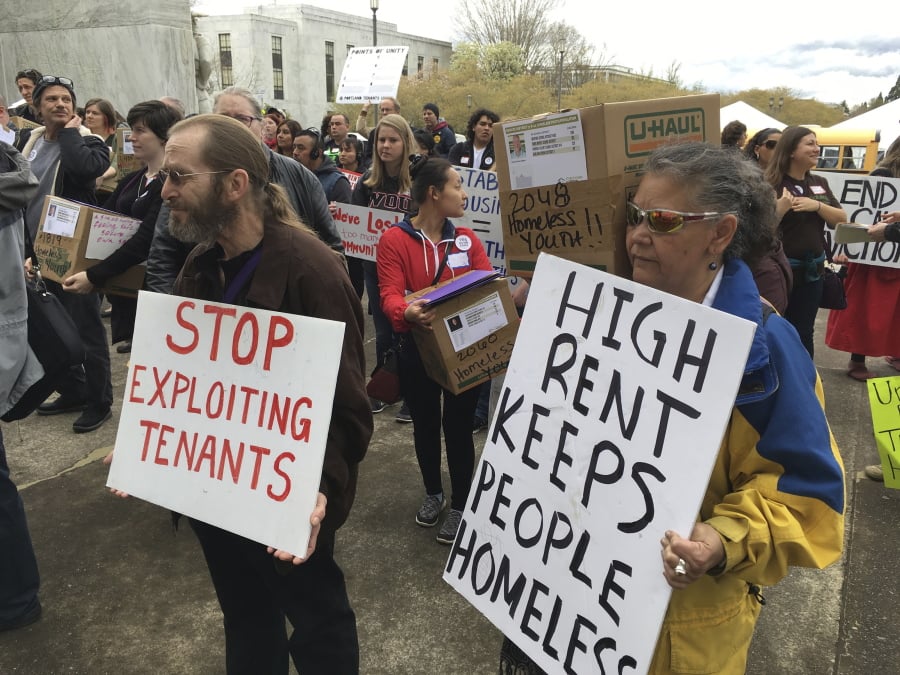SALEM, Ore. — Faced with a housing shortage and skyrocketing rents, Oregon is poised to become the first state to impose mandatory rent controls, with a measure establishing tenant protections moving swiftly through the Legislature.
Many residents have testified in favor of the legislation, describing anxiety and hardship as they face higher rents. Some have gone up by as much as almost 100 percent — forcing people to move, stay with friends or even live in their vehicles.
The Oregon housing shortage is getting worse because of an influx of people moving to the state — lured by the state’s job opportunities and its forests, mountains, coastline and relaxed lifestyle. Many move from California, where the cost of living is often more expensive.
Cities across the West Coast are struggling with soaring housing prices and a growing homelessness problem. The small southern Oregon city of Medford recently authorized churches to offer car camping for the homeless on their parking lots.
A state legislative House committee on Wednesday backed the measure, sending it to the full chamber for a vote as soon as next week. The state Senate passed it last week.
Gov. Kate Brown told reporters she expected the full House to approve the measure. “I look forward to signing the bill,” said Brown, a Democrat.
The committee rejected an amendment that would have exempted cities with populations under 150,000 and another that would have delayed the measure from becoming law until Jan. 1, 2020, rather than after Brown signs it.
“We’ve waited too long as it is, and there are too many people living in tents. It is an emergency,” said Rep. Tawna Sanchez, a Portland Democrat and member of the House Committee on Human Services and Housing that endorsed the legislation.
Lawmakers said Oregon will be a pioneer in statewide rent control if the measure becomes law. New York has a statewide rent control law, but cities can choose whether to participate.
California restricts the ability of cities to impose rent control. Last November, voters defeated a ballot initiative that would have overturned that law.
“Homelessness and affordability have no boundaries,” said Rep. Mark Meek, a Democrat from a Portland suburb. “We’re going to be leading the nation now with this legislation.”
Oregon’s measure prohibits landlords from terminating month-to-month leases without cause after 12 months of occupancy and limits rent hikes to once per year. Those increases are limited to 7 percent above the annual change in the consumer price index.
Landlords can terminate tenancies only with 90 days’ written notice and payment of one month’s rent, with exemptions in some cases. A landlord can refuse to renew a fixed-term lease if the tenant receives three lease violation warnings within 12 months and the landlord gives 90 days’ notice.
The Oregon Rental Housing Association, which represents small-scale landlords, said the measure protects good tenants while not encouraging landlords to leave the business and invest their money elsewhere.



